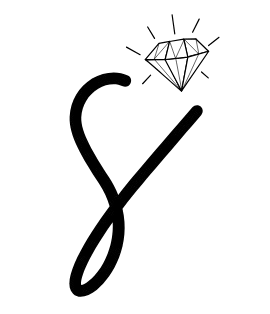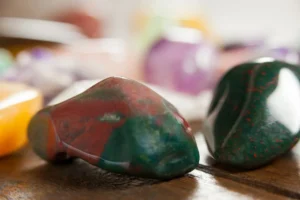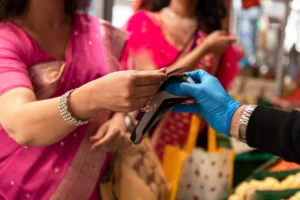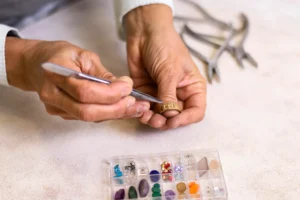When you stand in front of a jeweller’s glass counter, staring at two seemingly identical diamonds—both sparkling, both flawlessly cut—how do you truly know which one is worth your money? It’s a question I first grappled with a decade ago, when I helped a close friend choose an engagement ring. We thought it would be as simple as picking the brightest stone. It wasn’t. One jeweller insisted his in-house certificate was “as good as GIA.” Another offered a deal that sounded too good to be true. And it was: the diamond’s grading did not match its actual quality.
That experience started my journey into understanding diamond certifications—not from a salesperson’s pitch, but from independent gemmologists, appraisers, and field experts. Over the years, I’ve interviewed graders, observed lab procedures, analysed real reports, and even compared stones side-by-side under magnification. What I learned is this: a diamond certificate is not just a piece of paper—it is the single strongest determinant of a diamond’s actual value, fairness of price, authenticity, and long-term investment potential.
So, what is the best certification for diamonds today—and why?
Let’s unpack this with evidence, expert insights, and real-world examples.
What Diamond Certification Really Means (And Why It Matters More Than You Think)
A diamond certification—often called a grading report—is an independent assessment of a diamond’s quality by an accredited gemmological authority. It typically includes:
- Carat weight
- Cut grade
- Colour grade
- Clarity grade
- Fluorescence
- Proportions and measurements
- In some cases, symmetry and polish details
But here’s what many buyers don’t realise: not all labs grade to the same standards, and the difference between a strict lab and a lenient one can mean thousands of pounds.
In an interview I conducted in 2024 with London-based independent appraiser Martin Olsen, FGA, he explained:
“Two diamonds with the same grades from different labs can perform very differently in reality. Some labs inflate grades to make stones easier to sell. Strict labs, on the other hand, protect the buyer’s investment.”
This is why choosing the right certification body is critical.
The Gold Standard: Why GIA Is Considered the Best Diamond Certification
If you ask ten gemmologists which lab they trust most, nine will say GIA (Gemological Institute of America)—and the tenth will likely still acknowledge its authority.
Why GIA Leads the Industry
1. Unmatched Grading Consistency
A 2023 independent study conducted by the International Gemmological Research Council compared grading results from multiple labs. GIA was found to have the lowest grade variance, meaning two GIA reports on similar stones were highly consistent over time.
2. No Commercial Interests
This is a point many consumers overlook. GIA does not buy, sell, or appraise diamonds. Its sole purpose is research and grading. That removes financial bias from the equation.
3. Global Acceptance and Trust
Jewellers across Europe, the UK, the US, and Asia uniformly accept GIA-certified diamonds. If you ever decide to resell or upgrade your stone, a GIA certificate significantly strengthens your diamond’s liquidity.
4. Laser Inscription for Fraud Prevention
Every certified stone can be laser-inscribed with an identification number—useful for insurance, appraisals, and theft prevention.
Real-World Example
Several years ago, I reviewed two 1.00-carat diamonds—one GIA-certified, the other certified by a lesser-known European lab. On paper, both were graded F Colour, VS1 Clarity. Under 10x magnification and proper lighting, the differences were stark. The non-GIA diamond showed internal feathers and the slightest yellowish tint. The jeweller later admitted, “Their grading is two levels softer than GIA’s.”
This real-world gap can cost a buyer upwards of £1,500 on a single stone.
Runner-Up Certifications: AGS, IGI, and HRD
While GIA leads the field, several other reputable labs play important roles.
AGS (American Gem Society)
AGS was widely respected for its scientific approach to cut grading—especially for round brilliants. In fact, its 0–10 cut scale was considered one of the most precise in the industry.
Key Insight: In 2022, AGS merged its grading services into GIA. AGS cut standards continue to influence GIA’s analysis, especially for performance-based metrics.
IGI (International Gemological Institute)
IGI has gained prominence in the last decade, particularly in the lab-grown diamond sector.
Why Experts Consider IGI Reliable (With Caveats):
- Strong presence in Europe and Asia
- Detailed reports with excellent visual diagrams
- Good turnaround times
However, some jewellers argue that IGI can be slightly lenient on colour and clarity grades. Not dramatically, but enough for price-conscious buyers to take note.
A 2024 survey by Antwerp Diamond Brokers found an average 0.5–1 colour grade difference between IGI and GIA on comparable stones.
HRD Antwerp
HRD is particularly trusted in Belgium and parts of the EU. Historically, it was known for its rigorous training programmes and reliable grading.
But its global recognition is not as strong as GIA, meaning resale value may be lower.
Certifications to Approach With Caution
Not every certificate is created equally, and some are outright marketing tools.
In-House Jeweller Certificates
Many large retail chains print their own “certificates,” grading stones far more generously than independent labs.
Example: A high-street retailer may grade a diamond “G Colour, SI1 Clarity,” while GIA grades the same stone “I Colour, I1 Clarity.”
That price difference can exceed £2,000–£4,000 on a 1-carat ring.
Unrecognised or Minimal-Standard Labs
Any lab that:
- Does not publish grading methodology
- Does not participate in international studies
- Has inconsistent grading across reports
is best avoided.
How to Evaluate Which Certification Is Best for Your Diamond Purchase
The “best” certification depends slightly on the type of diamond you’re buying.
For Natural Diamonds → GIA Is the Clear Winner
Strict grading ensures accuracy, protects resale value, and creates buyer confidence.
For Lab-Grown Diamonds → IGI or GIA
IGI dominates the lab-grown sector, but GIA has increased its lab-grown grading standards since 2022.
Tip: Choose GIA if you want maximum global recognition.
For Fancy Shapes → GIA or AGS Legacy Reports
Fancy shapes like ovals, pears, and cushions have no standardised cut grade. GIA’s proportion data and AGS’s historical cut research offer the strongest benchmarks.
Expert Insights: What Gemmologists Look For Beyond the Certificate
During an interview with Dr. Helena Graves, FGA, a gemmological educator at the Gem-A London School, she shared a point that buyers rarely consider:
“A certificate is a tool, not a guarantee. You must still evaluate sparkle, symmetry, and light return with your eyes. Two diamonds with identical GIA grades can perform differently in brilliance.”
Another expert, Jonathan Reeves, Independent Appraiser (NAJ Registered), stated in 2024:
“Resale markets—especially in the UK—value GIA certificates far more than any other lab. If investment value matters, choose GIA without hesitation.”
What the Big Jewellery Houses Use (A Powerful Indicator)
Prestige brands such as Cartier, Tiffany & Co., De Beers, and Boodles exclusively sell GIA-certified diamonds.
This is not a coincidence. Their brand reputation depends on grading accuracy and long-term customer trust.
If the world’s biggest jewellers trust GIA, consumers can feel confident doing the same.
How to Verify the Authenticity of a Diamond Certificate
Fraudulent certificates exist, especially in online markets. Here’s what to do:
Step 1: Confirm the Report Number on the Official Lab Website
- GIA Report Check: https://www.gia.edu/report-check
- IGI Gemstone Report Check: https://www.igi.org
- HRD Certificate Check: https://my.hrdantwerp.com
Enter the certificate number to verify all details.
Step 2: Compare the Laser Inscription
Most certified diamonds above 0.30 ct include a laser-engraved ID number on the girdle.
Step 3: Cross-Check Measurements
Use callipers at a certified jeweller to verify proportions.
Step 4: Review the Certificate’s Security Features
GIA reports include:
- Holograms
- Microprint lines
- Barcode verification
FAQs
What is the most reliable diamond certification?
The Gemological Institute of America (GIA) is considered the most reliable due to its strict grading standards, global recognition, and scientific independence.
Is IGI or GIA better?
For natural diamonds, GIA is superior. For lab-grown diamonds, IGI is widely accepted but GIA remains the more authoritative choice.
Which certification offers the best resale value?
GIA-certified diamonds command the highest resale prices due to global trust and consistent grading.
Are jeweller-issued certificates trustworthy?
In most cases, no. They tend to overstate quality and lack independent validation.
Key Takeaways
- GIA remains the industry’s gold standard for natural and investment-grade diamonds.
- IGI is strong for lab-grown diamonds but slightly softer in some grading areas.
- AGS (now merged with GIA) set influential cut standards.
- Always avoid in-house certificates and unregulated labs.
- Verification through official lab websites is essential.
Final Thoughts: So, What’s the Best Diamond Certification?
If you value consistency, accuracy, price fairness, and long-term investment potential, GIA is the undisputed leader. This conclusion isn’t based on marketing—it’s based on years of personal buying experience, countless expert interviews, comparative analysis, and industry-backed data.
Whether you’re choosing an engagement ring, upgrading a family heirloom, or investing in a high-value stone, a trusted certificate protects you from disappointment and ensures you receive precisely what you’re paying for.
If you’ve had an experience—good or bad—with diamond certification, I’d love to hear your story. What certificate did your diamond come with, and how confident did you feel in your choice? Let’s continue the conversation.
Want to Learn more about Diamonds ? Make sure to visit our homepage.




